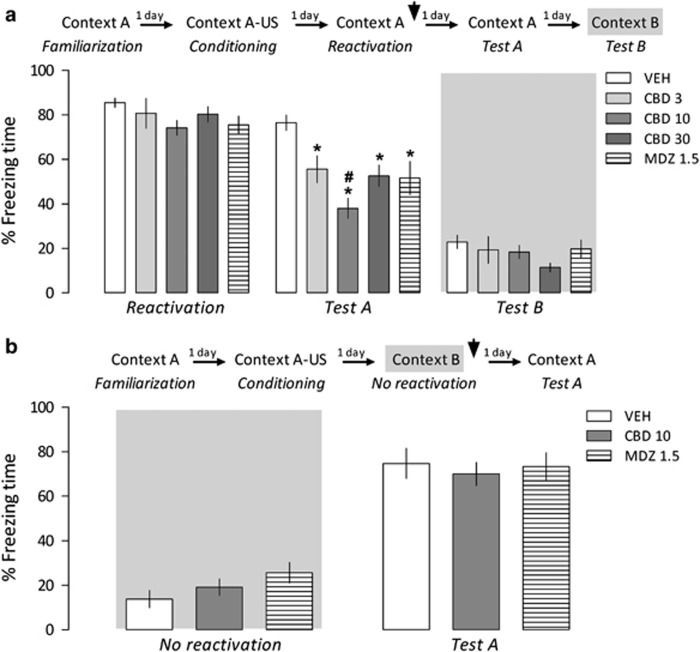Figure 1.
(a) Evidence for a disruptive effect of cannabidiol (CBD) or midazolam (MDZ) on fear memory through reconsolidation blockade. After a familiarization period, animals were conditioned to Context A by receiving three footshocks, the unconditioned stimulus (US). On the next day, they were reexposed to Context A for 3 min to reactivate the established fear memory. Immediately after this period, they received intraperitoneal injections of vehicle (VEH), CBD (3–30 mg/kg), or MDZ (1.5 mg/kg). Both CBD- and MDZ-treated animals froze less than controls when reexposed to the conditioned context (Test A) 24 h later. No difference was found when the animals were exposed to a neutral context (Test B). (b) Memory reactivation is necessary for the disruptive effect of CBD or MDZ on fear memory to occur. On the day following the contextual conditioning session described above, the animals were treated with vehicle (VEH), CBD (10 mg/kg), or MDZ (1.5 mg/kg) after being exposed to the neutral context B for 3 min (unpaired context). No differences were found when they were reexposed to the paired context 24 h later (Test A). The arrowhead indicates the moment of drug treatment. Bars represent the percentage of freezing time. The asterisks indicate a significant difference (P<0.05) from respective controls, whereas the hash (fence) symbol indicates significant difference from other groups treated with CBD.

